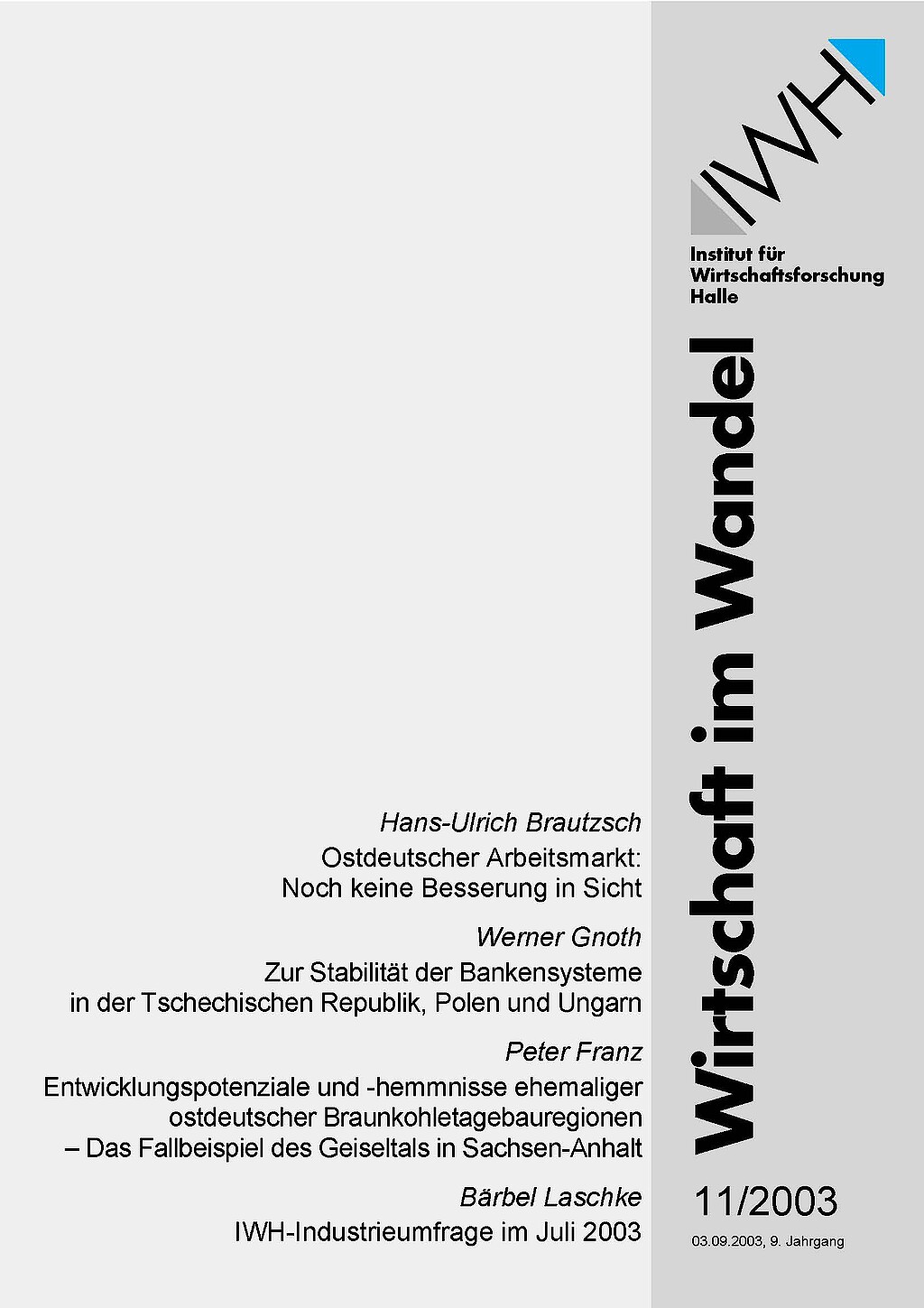
On the stability of the banking systems in the Czech Republic, Poland and Hungary
Es ist ein grundlegendes Interesse der EU-Staaten, dass die Bankensysteme der beitretenden Länder stabil sind. Denn, Instabilitäten bei der Anwendung des gemeinschaftlichen Besitzstandes im Finanzsektor eines der beitretenden Länder hätten letztlich Auswirkungen auf das Finanz- und Wechselkurssystem der Gemeinschaft mit realwirtschaftlichen Folgen. Im vorliegenden Artikel wird die Stabilität der Bankensysteme in der Tschechischen Republik, Polen und Ungarn untersucht. Gegenwärtig stehen die Bankensysteme vor keinem unmittelbaren Problem: Ein schwacher Wettbewerb, eine am EU-Durchschnitt gemessen hohe Inflationsrate und der geringe Intermediationsgrad ermöglichen den Banken noch einen ausreichenden Zinsertrag. So verkraften sie einen relativ hohen Anteil an notleidenden Krediten und eine hohe Fremdwährungsverschuldung. Damit die Integration der Bankensysteme der Beitrittskandidaten in die EU erfolgreich wird, sind jedoch noch einige Bedingungen zu erfüllen: Es gilt, das Dienstleistungsangebot zu erweitern, den Anteil von notleidenden Krediten vor allem im tschechischen und polnischen Bankensystem zu verringern sowie die Fremdwährungsverschuldung im polnischen und ungarischen Banken- und Unternehmenssektor angemessen zu begrenzen. Die Erhöhung der Kapitalbasis ist ebenso eine wichtige Aufgabe.




